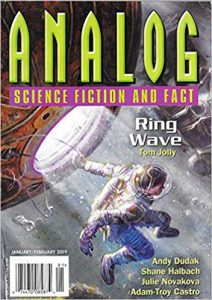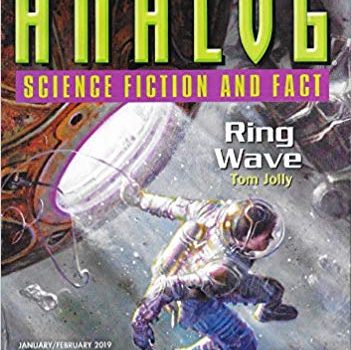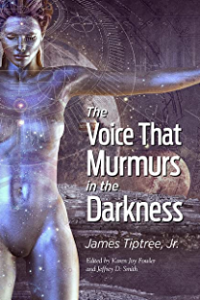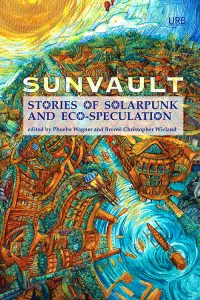Rich Horton Reviews Short Fiction: Analog, Asimov’s, Amazing, and Longshot Island
 Analog 1-2/19
Analog 1-2/19
Asimov’s 1-2/19
Amazing Winter ’18
Longshot Island 2/18
Analog opens 2019 with a varied set of stories that include some striking and unusual work. For example “Love in the Time of Immuno-Sharing” by Andy Dudak is set in a future city-state (of sorts), the Moveable Feast, in which sexual fashions turn on mingling disease profiles, with the notion of increasing everyone’s resistance. “Repro-sex” is frowned upon. (That description doesn’t really capture what’s going on.) Four people, lovers of sorts, travel to a differently organized city, and end up causing or being affected by political chaos. Simply weird!
Weird in a different and frankly more Analog-ish way is Thoraiya Dyer‘s “A Civilization Dreams of Absolutely Nothing“. The civilization in question is on a planet in a dangerously unstable system at the edge of the known universe (from their perspective). They are threatened by the characteristics of the system itself – asteroids caused by the collision of two inner planets – and by a “Menace” from outside, which turns out to be dark matter. The inhabitants are not human, but intelligent creatures who share their experiences with their fellows in dreams, and who edit their memories with intent. The protagonist is Jade, a cosmochemist with three children, aware that she and her mate, Shale, must leave them for a mysterious project to counter the threat of the Menace. All of this is very strange, and a bit hard to follow (for good enough reasons), and slowly we realize the actual plans Jade has, which are pretty intriguing…. There’s a lot going on here, for a shortish novelette, and a lot is unexplained (such as the history of the planet)…. It’s hard to say if it fully works (for one thing, I found the characters presented as just a tad too human), but it is fascinating.
There is also a novella from Adam-Troy Castro, the latest of his Draiken stories, “The Savannah Problem“. I was particularly struck by the structure here – the story seems all exposition, in a way, as Castro depicts Draiken’s pursuit, capture, and extraction of a gangster thug from a space station. All this is interesting – Castro is good at action and tactics – but it seems extended, as we wait and wait for Draiken’s purpose in capturing this man. A risky tactic in a storyteller – but Castro pulls it off with a brilliant, rapid, thematically relevant conclusion.
In Asimov’s for January-February I was impressed by Jay O’Connell‘s “The Gorgon“, in which an HR manager at a software company has to deal with his star architect’s announcement that he’s quitting. He tries to find out why – and what he finds is really scary indeed. The actual idea is fairly familiar, but the story is stylishly told, and the variation O’Connell rings on the central idea is clever enough that it really stands out. Also enjoyable is Peter Wood‘s “Salting the Mine“, mostly for the amusing natives of a planet colonized for mining purposes and then abandoned. Said natives and the human colonists have forged a bond… then the mining company returns, which is not good news.
There are two fine novellas in this issue. Robert Reed‘s “The Esteemed” is an intricate time-travel story, featuring a man from the future returning to a version of our time (and past decade) warning of a variety of catastrophes, while also identifying critical people, who become “the esteemed” of the title, and who will have a particular impact on the future(s). Alexander Jablokov has another story about Sere, investigating things in the baroque multi-species city of Tempest. In “How Sere Looked for a Pair of Boots” she begins by trying to free her cousin’s boyfriend from prison, and ends up stumbling on something much more significant. The best part of the story is the gleeful description of the odd configurations and habits of the various alien species. Fun stuff.
The second issue of the revived Amazing Stories features a few nice stories. “The Asteroid Contention” by Marina J. Lostetter doesn’t really do anything new, but it does it nicely, telling of twin sisters each trying to be the first to claim a potentially valuable asteroid, and finding that the asteroid is more valuable than they might have thought – and that their relationship is more valuable still. Daniel M. Kimmel‘s “The Ransom of Red Robot (Beta)” is exactly what you have likely already guessed – a revamping of O. Henry’s famous story “The Ransom of Red Chief” with a snarky robot replacing the bratty child of the original. Amusing enough – and with a nice extra twist at the end to make it worth the effort. The standout this issue is by Julie Novakova; “Reset in Peace” concerns Klaus Voort, who works for a company that creates personality simulations of dead people. He is contacted by the head of another company, who offers him a huge sum to get him access to one particular simulation, a crusading journalist who died fairly young. Klaus knows there’s something fishy going on, but his husband has got them disastrously into debt, and so he’s tempted…. What makes the story really work is the way the conclusion makes us think about the technology at the heart of the story, and about the people in the story – Klaus and his husband, the dead journalist, and the man who wants to talk to the journalist’s simulation.
It’s also worth mentioning a magazine that is new to me: Longshot Island. It seems to have a multi-genre focus, and #6, from February of 2018, is called “Deep Space: The Science Fiction Issue.” I wasn’t really wowed by any of the stories, but I did enjoy Emily Devenport‘s “Wraiths“, about Deb, a wraith (a sort of ghost) who comes to “consciousness” in a house occupied by drug dealers, and intervenes in their business, and then in other human issues, even as another wraith she meets seems bemused by her preoccupation. I also liked Jerry Oltion‘s “The Moon Tree“, about an old hippie who notices a tree on the University of Oregon campus that seems to have an aura – an aura that makes those near it tend to feel love. Indeed, he and a younger woman he encounters start having those feelings – and the man realizes the tree’s powers need to be used for good. Slight, but amusing.
Recommended Stories:
“The Savannah Problem”, Adam-Troy Castro (Analog 1-2/19)
“Love in the Time of Immuno-Sharing”, Andy Dudak (Analog 1-2/19)
“A Civilization Dreams of Absolutely Nothing”, Thoraiya Dyer (Analog 1-2/19)
“How Sere Looked for a Pair of Boots”, Alexander Jablokov, (Asimov’s 1-2/19)
“The Gorgon”, Jay O’Connell (Asimov’s 1-2/19)
“Reset in Peace”, Julie Novakova (Amazing Winter ’18)
Rich Horton works for a major aerospace company in St. Louis MO. He has published over a dozen anthologies, including the yearly series The Year’s Best Science Fiction and Fantasy from Prime Books, and he is the Reprint Editor for Lightspeed Magazine. He contributes articles and reviews on SF and SF history to numerous publications.
This review and more like it in the February 2019 issue of Locus.
 While you are here, please take a moment to support Locus with a one-time or recurring donation. We rely on reader donations to keep the magazine and site going, and would like to keep the site paywall free, but WE NEED YOUR FINANCIAL SUPPORT to continue quality coverage of the science fiction and fantasy field.
While you are here, please take a moment to support Locus with a one-time or recurring donation. We rely on reader donations to keep the magazine and site going, and would like to keep the site paywall free, but WE NEED YOUR FINANCIAL SUPPORT to continue quality coverage of the science fiction and fantasy field.








